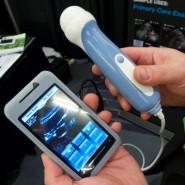
Hospitals have many devices collecting data on patients, but until recently information from those devices has not been routinely integrated nor stored in electronic medical records. In this interview, Stuart Long, Chief Marketing and Sales Officer of Capsule explains the benefits of medical device integration and how it works in a hospital.

Hospitals have many devices collecting data on patients, but until recently information from those devices has not been routinely integrated nor stored in electronic medical records. In this interview, Stuart Long, Chief Marketing and Sales Officer of Capsule explains the benefits of medical device integration and how it works in a hospital.
Why is medical device connectivity important, and what benefits does it bring to the patient?
Rapidly becoming a priority for many hospitals, biomedical device connectivity to the hospital network—or medical device integration (MDI)– enables medical devices to transfer patient data from the point-of-care over the network into an electronic medical record (EMR) system or other charting systems. Device integration delivers patient data to clinicians in near real time so that information supporting patient care decisions is delivered timely and accurately. Without MDI, patient data, particularly vital signs, is transcribed on paper charts and the recording is duplicated by manually having to key the data into the patient’s electronic record. MDI helps assure data accuracy by eliminating manual transcription errors while relieving caregivers from burdensome manual tasks, enabling more quality time with patients. The bottom line is increased patient safety and care.
Why is it important to automate the collection of patient data (i.e. vital signs) and how does this improve the quality of data entering the EMR?
End-to-end automation of patient data collection ensures accuracy and precision. Full automation removes potential error points along the way as device information is sent to the EMR or other systems. For example, as I mentioned before that many caregivers read data from a device, manually record it and then input it into the electronic system. From an administrative standpoint, the need for absolute accuracy of data is greater than ever before. In addition, having data in electronic format is essential to ensure the full realization of a complete electronic record, which enables data exchange with other hospital IT systems and access to this information hospital-wide. Again, from a regulatory and reimbursement standpoint, the importance of this electronic format is increasing as Meaningful Use (MU) guidelines become more defined.
What happens to patient data as it moves throughout the hospital? How is that data being used?
As patient data is collected through electronic means, it is aggregated from software or hardware, analyzed by the connectivity software, and translated into a format appropriate for the hospital IT system receiving the information. Various hospital departments—whether the ED, OR, ICU or med-surg–may output device data in disparate formats, often completely proprietary formats. That data then must be translated into a standard format for the EMR and perhaps reinterpreted once again for compatibility with specialized departmental IT systems. As each new department inputs information, the data is normalized as required and translated for the needs of specific hospital IT systems. In that way, device information can follow the patient through the hospital, wherever it is needed.
What are some of the differences across care units in the hospital? How does that impact the technology being used?
Workflow varies greatly among various care units—the ED, OR, med-surg and step-down, for example, and also varies by hospital. Med-surg units often have many beds with a limited number of devices shared among them on mobile carts. Intensive Care, by contrast, may rely on a greater number of devices, which are fixed in location and associated with a particular bed. A quality MDI system seeks to reduce the complexity of its technology by supporting the existing workflow already in place in a particular setting. Capsule has different hardware and software solutions to support various settings and workflow requirements. Some are wall-mounted units that accept fixed-position devices and are already associated with a specific bed for continuous data collection. Another solution would be a mobile device interface for equipment with no fixed location, which must be associated with the individual patient for periodic data collection. Data must be validated, and in some settings, a nurse requires flexibility about the timeframe care patients may require immediate attention before caregivers have time to accept data.
image:connectivity/shutterstock
Interview conducted by David E. Williams of the Health Business Group.







